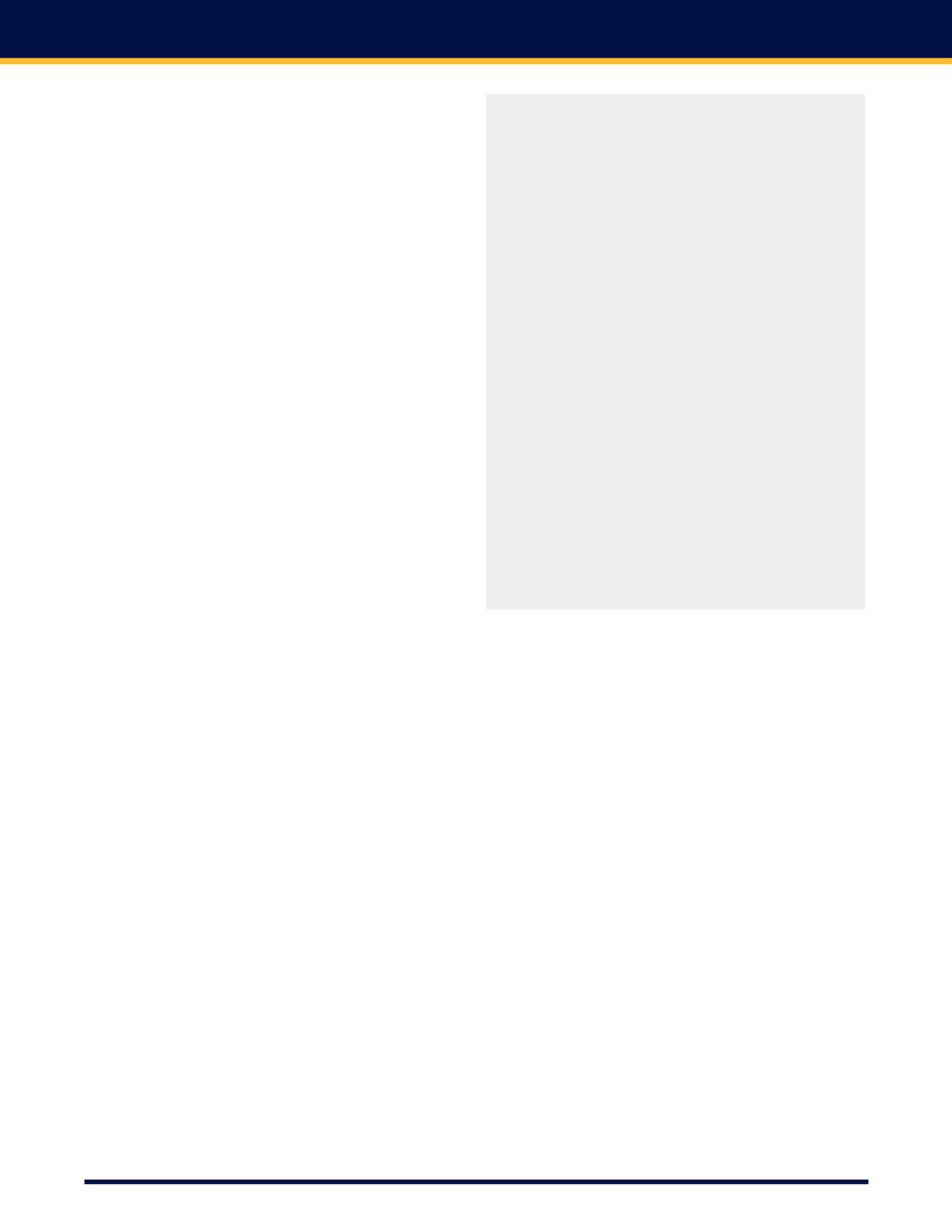

120
2012-2013 Undergraduate Programs
pended from CIU when their behaviors and atti-
tudes are inconsistent with the standards or the
basic purpose of CIU. Such withdrawals or sus-
pensions may be for a specific time during which
the student has opportunity to evaluate the stu-
dent’s personal goals and relationship to the uni-
versity. The dean of Student Life serves as the
administrator of this college policy and serves as
the adjudicator in disciplinary matters related to
character or behavior. (See information regarding
student discipline in the Student Life section of
this catalog, or consult the Student Handbook.)
Classes and Examinations
Attendance
The heart of the college experience, in many
respects, will be the work done in the classroom.
The undergraduate faculty, therefore, takes a seri-
ous view of class attendance. The course offer-
ings are designed to enrich a student’s
preparation for life. A student will need to interact
with the professor and students and to learn more
from a course than simply “getting the notes” in
order to perform on an examination. Significant
insights and perspectives may surface in the
classroom and a student is expected to con-
tribute to class discussion.
The faculty recognizes that extenuating circum-
stances sometimes necessitate missing classes.
The number of absences allowed without written
permission varies according to the status of the
student, the number of class meetings each week
and whether the course is freshman, sophomore,
junior, or senior level. For more information, see
“Absences” below and “Exceptions to the
Absence Policy” on the following page.
Absences
There is no formal “cut” system, but it is recog-
nized that sickness, academic field trips or some
emergencies may necessitate missing classes on
occasion. To allow for this, while still encouraging
students to accept responsibility for class atten-
dance, the university does not require written per-
mission for every course absence, as indicated in
the following table:
Absences
Permitted
Course
Class
Without
Level
Sessions
Written
Meeting Permission
Each Week
Per
Semester
1000 Level Courses 1 or 2
1
3 or 4
2
2000 Level Courses
1
1
2 or 3
2
4
3
3000 Level Courses
1
1
2
2
3
3
4
4
4000 Level Courses
1
1
2
2
3
3
4
4
All additional absences require written permission.
Please note that absences above relate to the
number of class meetings held weekly, not to the
credit hours involved. Written permission can be
granted by the student’s physician, the academic
dean or the course instructor. Note that the table
is not a provision for “cuts” but for absences for
valid reasons. So, for example, if allowance is
made for three absences in a course and a stu-
dent takes them for reasons other than indicated,
the instructor may not choose to excuse a later
absence due to an illness or emergency that
could have been covered by the absences
allowed. Normally, the penalty for unexcused
absences will involve a grade reduction.
In certain participatory classes, students must
account for all absences. In such cases, teachers
will clearly indicate this requirement in the class
syllabus. They will also indicate the penalty for
noncompliance. Listed below are terms and addi-
tional requirements related to course attendance:
•
Academic Probation.
Students on academic
probation must receive prior permission from
the course instructor for all absences, unless
medically excused.



















